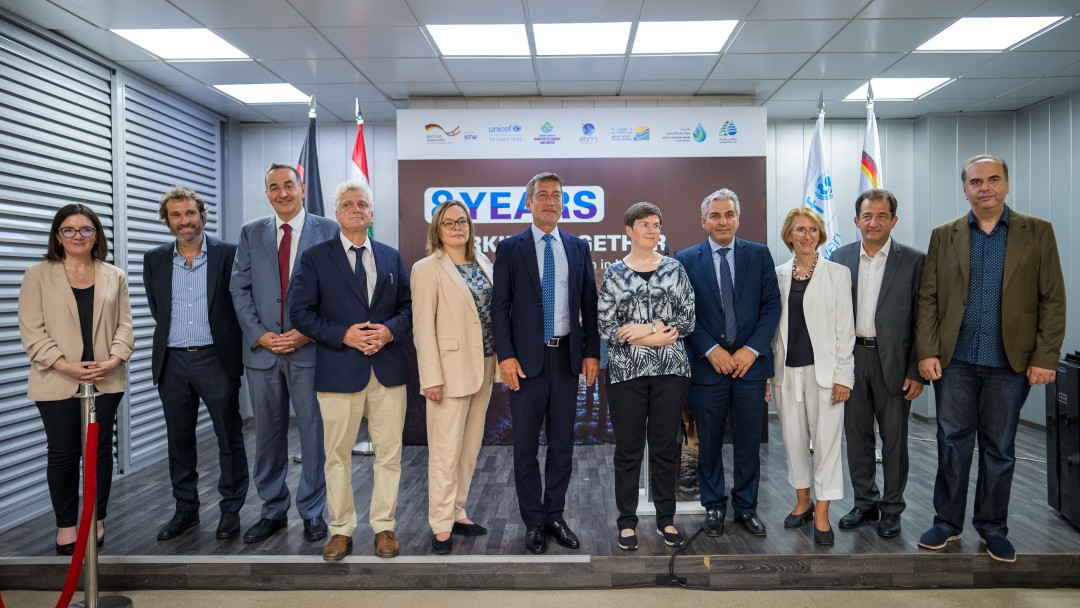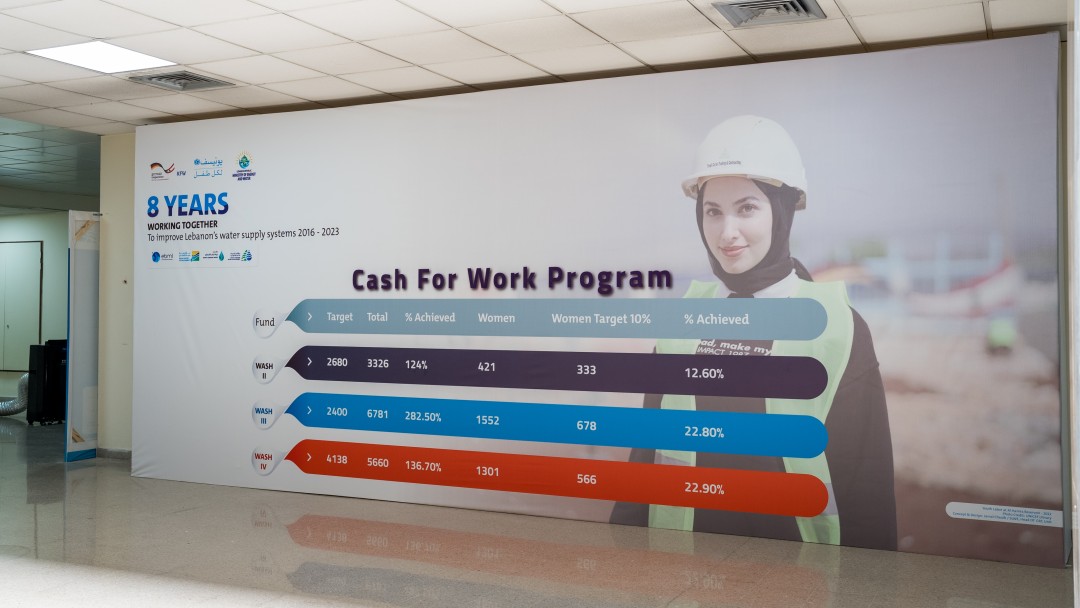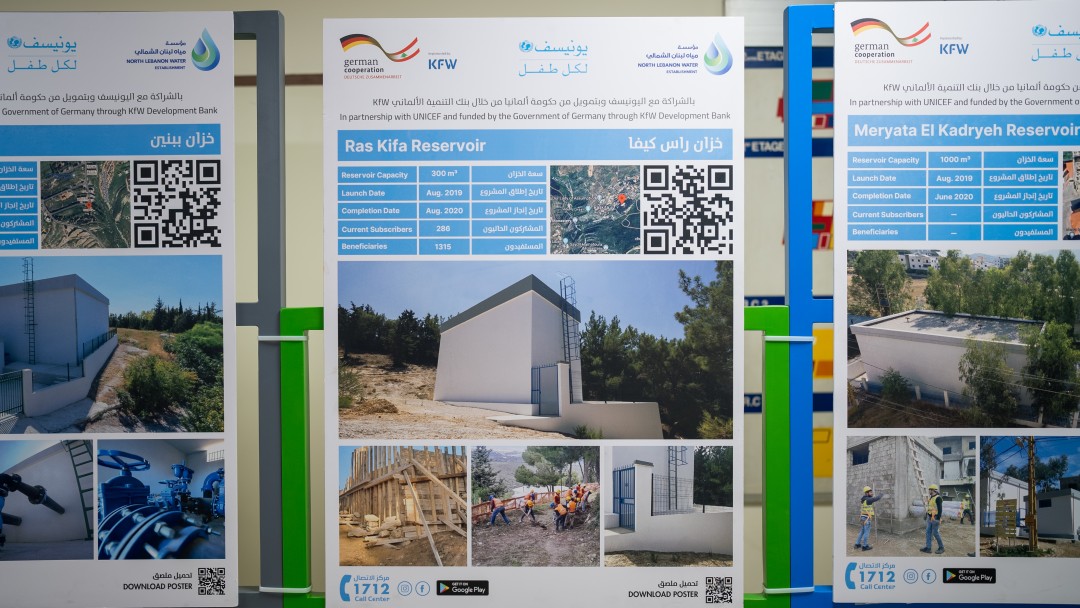News from 2023-08-07 / KfW Development Bank
Photo exhibition in Beirut - eight years of engagement in the water sector

On 1 August, a photo exhibition on the commitment of the United Nations Children's Fund (UNICEF), the Lebanese Ministry of Water and Energy (MoEW) as well as the local water utilities and KfW Development Bank - on behalf of the German Federal Ministry for Economic Cooperation and Development (BMZ) - was opened in Beirut. Numerous guests were informed about the successes of the programme by means of impressive photos and exchanges among themselves. UNICEF implements the programme "WASH Infrastructure for Refugees and Host Communities" in close cooperation with the Lebanese partners and the water utilities. Various water supply and sanitation infrastructure measures are being rehabilitated, expanded or newly built through a labour-intensive construction approach.

More than 15,000 short-term jobs have been created, and almost 2.3 million people are benefiting from improved water supply and sanitation in over 100 construction measures throughout the country. In a total of five phases, KfW Development Bank is investing a total of EUR 120 million on behalf of the BMZ through the Special Initiative "Displaced Persons and Host Countries - Partnerships for Prospects".
People receive temporary income
In Lebanon, mainly due to the war in Syria, up to 1.5 million refugees meet a local population of 4.5 million people. In addition, Lebanon has been struggling with an economic, financial and governmental crisis since 2019, in addition to the consequences of the Corona pandemic and the terrible explosion in the Beirut port district in August 2020. The Lebanese currency lost 98% of its value and yearly inflation reached up to 260% in May 2023. The consequences were and are, among others, rising unemployment of 30% in 2022. Meanwhile, studies suggest that more than half of the population of the country, whose capital was once called "Paris of the Middle East", live below the poverty line.
Providing drinking water to locals and refugees
In many municipalities, the limit of what is bearable was reached, especially in terms of infrastructure. Failures in the drinking water supply led to cholera outbreaks in 2022. In order to improve living conditions and also to avoid conflicts between the local population and refugees, it is necessary to not only provide short-term employment but also to rehabilitate and expand the infrastructure in the host communities in the long term. This also applies to water supply and sewage disposal. Thus, through labour-intensive measures within this cooperation, a total of 65 drinking water reservoirs could be rehabilitated, expanded or newly built, 24 springs developed or expanded, and nine sewage networks optimised. Three phases have already been completed, and two additional phases are still being implemented.

Perspectives for local and refugee families
Improved water supply and sanitation as well as short-term employment facilitate everyday life in the communities and create prospects for refugees and vulnerable local families.
"Ensuring access to drinking water and sanitation is a key human rights obligation of the state" said Deputy German Ambassador Katharina Lack in her welcoming speech. She emphasised: "This exhibition pays tribute to the sizeable contribution made by Germany, over the past eight years, to support Lebanon in this sector. I hope that this investment will have lasting benefits for the communities served by these infrastructure developments.”

Share page
To share the content of this page with your network, click on one of the icons below.
Note on data protection: When you share content, your personal data is transferred to the selected network.
Data protection
Alternatively, you can also copy the short link: https://www.kfw-entwicklungsbank.de/s/enzBWrMC.C9cA
Copy link Link copied